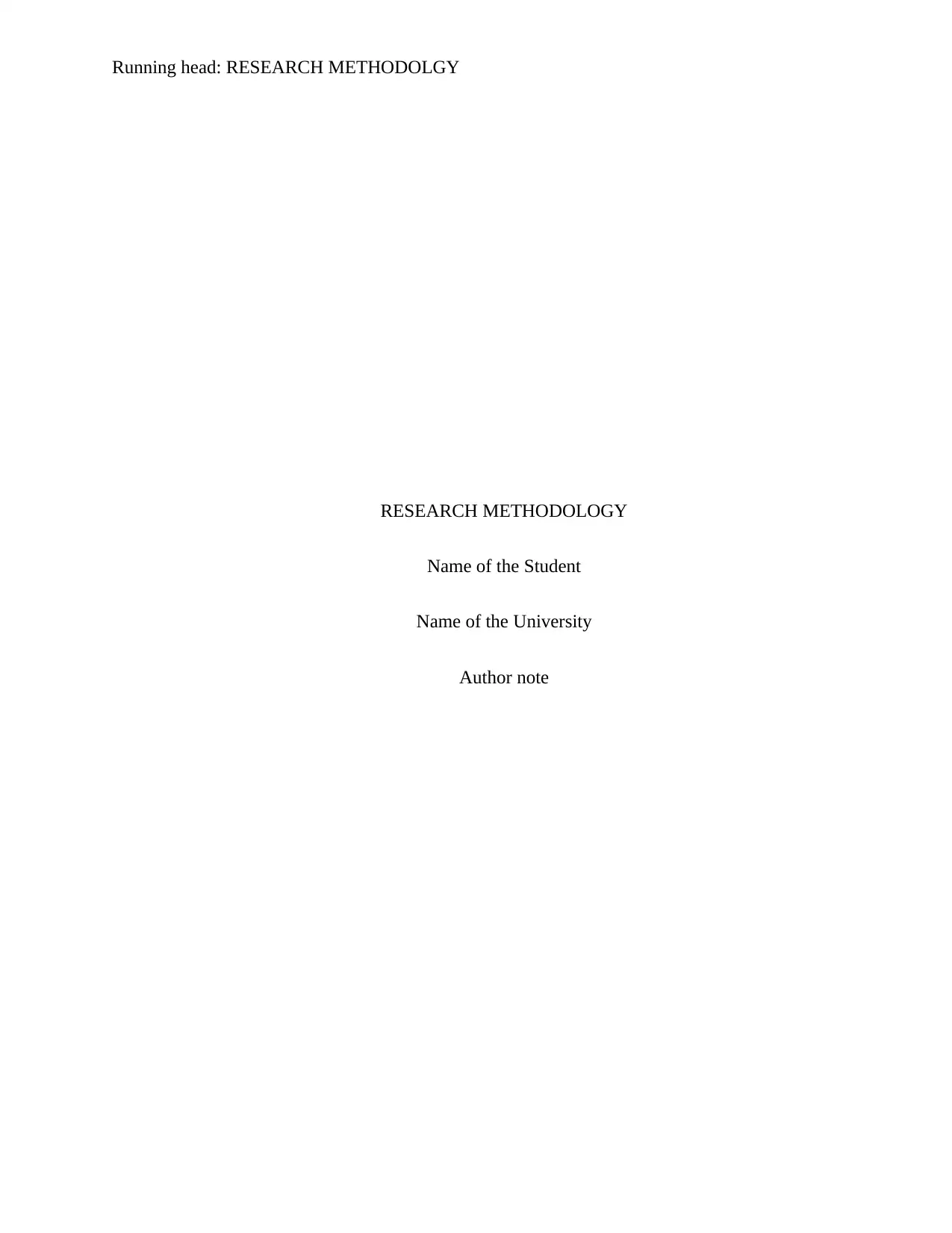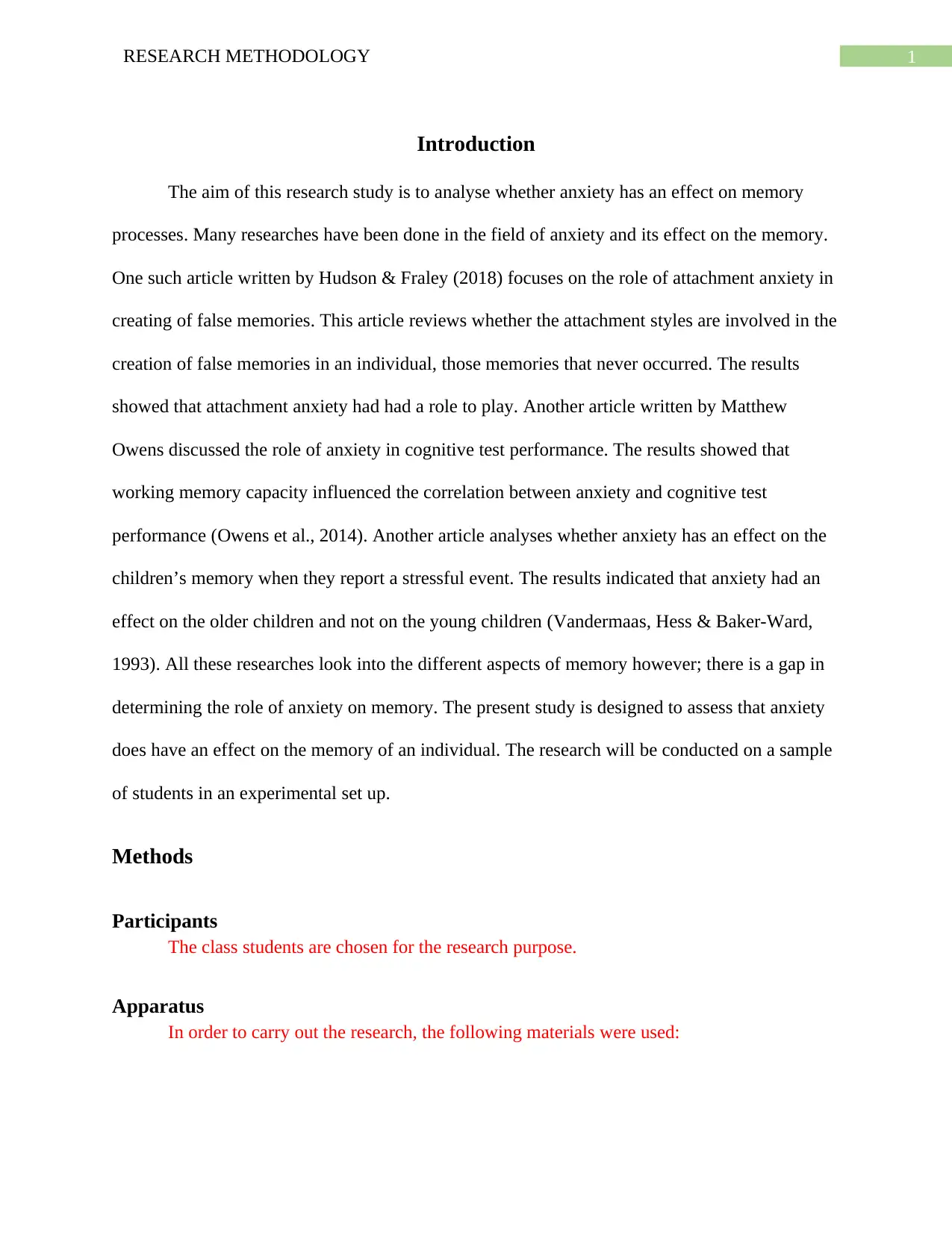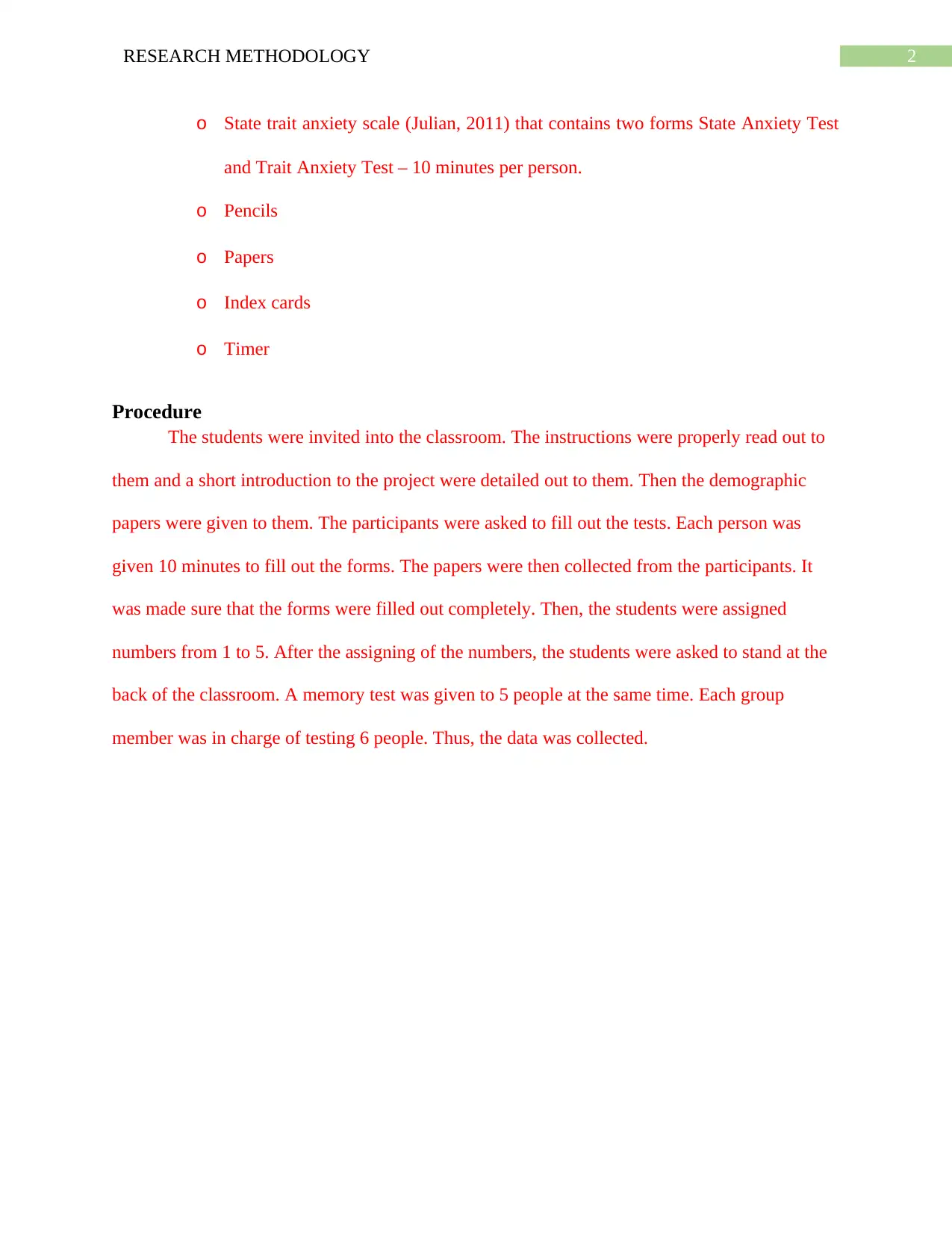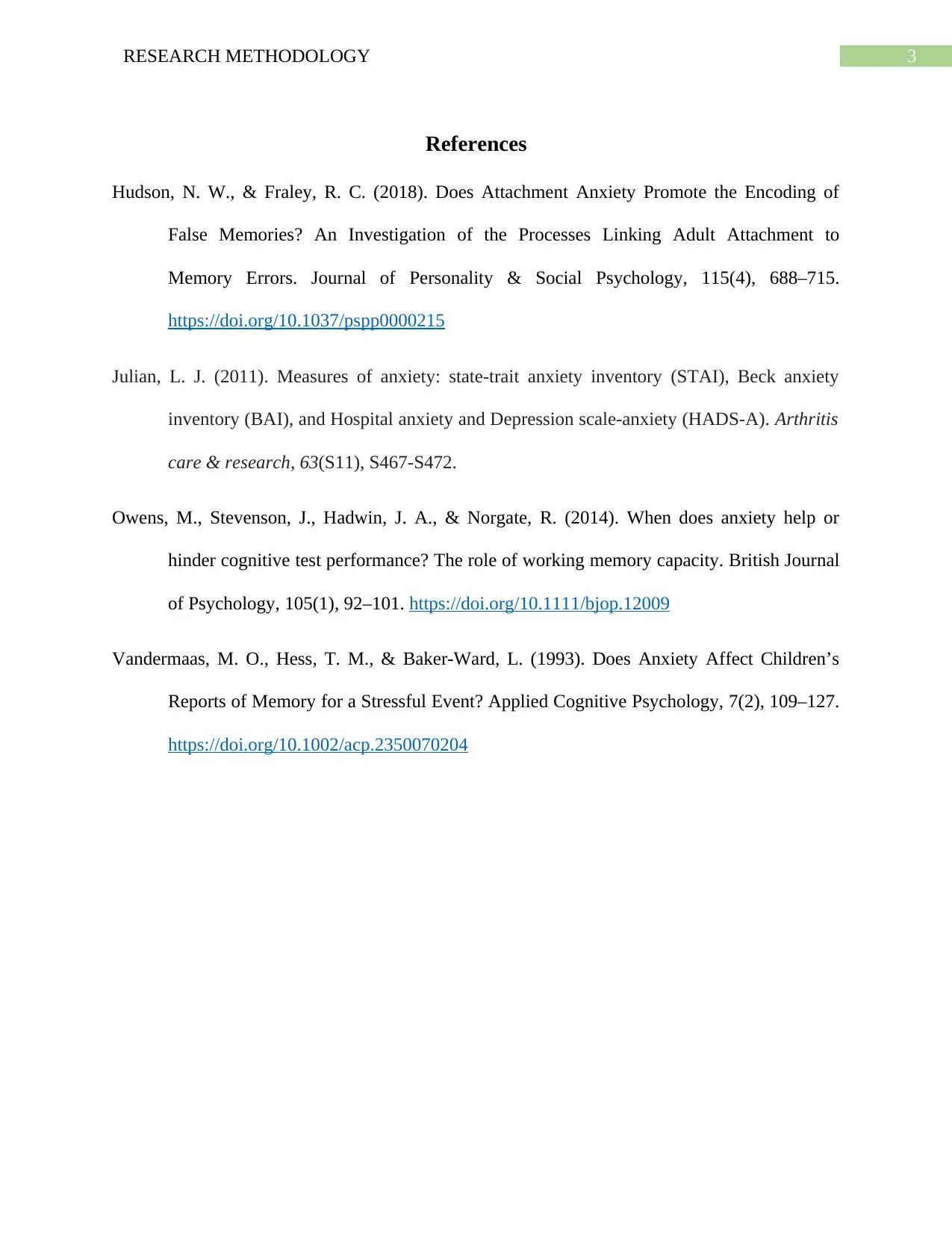A Study on Anxiety's Influence on Memory: Research Methodology Report
VerifiedAdded on 2022/08/12
|4
|677
|33
Report
AI Summary
This research report investigates the impact of anxiety on memory processes, aiming to determine whether anxiety has a measurable effect. The study employs an experimental setup, utilizing a sample of students. The methodology involves the use of the State-Trait Anxiety Scale, pencils, papers, index cards, and a timer. Participants are given the anxiety scale and then a memory test. The study references relevant literature on anxiety and memory, including articles by Hudson & Fraley (2018), Matthew Owens (2014), and Vandermaas, Hess & Baker-Ward (1993). The research design involves the administration of anxiety tests followed by a memory test, with data collected and analyzed to assess the relationship between anxiety levels and memory performance. The report details the procedure followed, from participant selection to data collection, and provides a clear overview of the research process.
1 out of 4





![[object Object]](/_next/static/media/star-bottom.7253800d.svg)